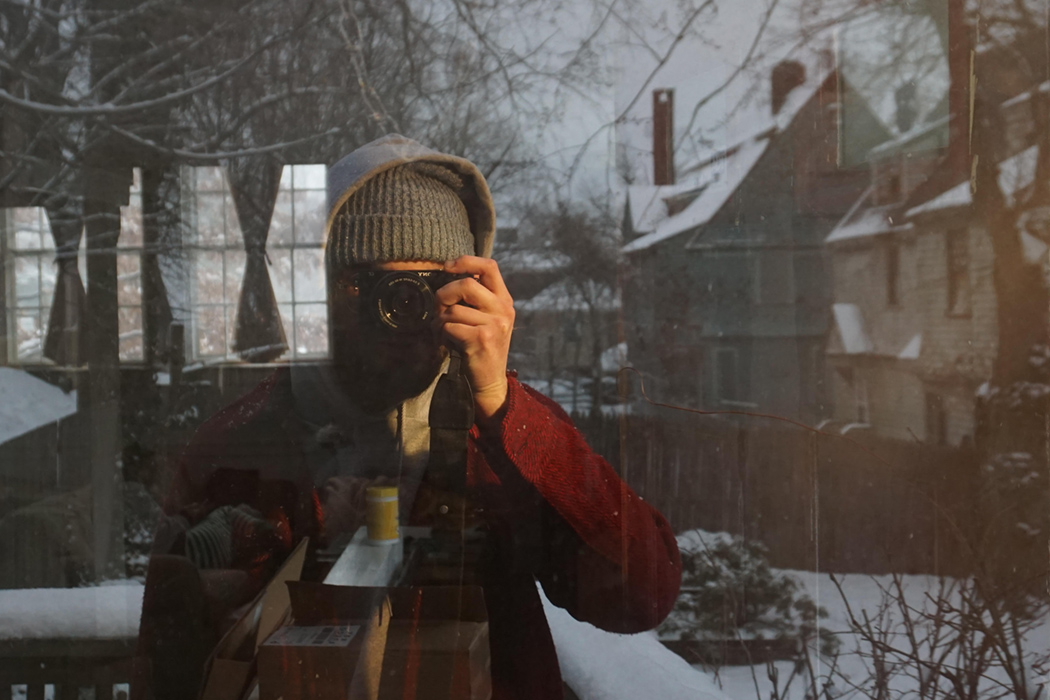By Dave Cantor
Delving into a Ryley Walker album might offer up some tuneful, ’70s-style folk and rock songs, dispatched in a relatively traditional way. Or you could hear a batch of improvised psychedelia. He’s also got a full-length re-interpretation of a Dave Matthews Band record.
The singer-songwriter’s latest—Course in Fable, released in spring 2021—is one of those more traditional albums, though his arrangements make room for knotty melodic twists, and artfully crafted couplets that are as rewarding as they are confusing. Walker’s sense of adventure is likely to be pushed further than his most recent recording when he performs at the Southern on Sunday. Avant-garde drummer Chris Corsano is set to join the troupe for the performance.
“I moved out to the country for a while to get a little pond-swimming action and fresh air, but I’m a city slicker. So, I’m back in Brooklyn,” says Walker, who called Chicago home for most of his life but spent a portion of the pandemic in rural Vermont. “I gave it a good try. It’s not my thing. I grew up in the city. I like driving through nature, but I can’t live in that shit.”
The first few recordings Walker issued, including a collaboration with Fredericksburg native Daniel Bachman, grasped at the tradition of acoustic guitar as promulgated by visionaries like John Fahey and Sandy Bull. Walker, though, soon tired of the medium’s strictures, and after 2015’s Primrose Green he began branching out with more experimentally inclined works, like Cannots alongside Chicago drummer Charles Rumback.
While working to attain sobriety and hold on to it, the guitarist settled on an aesthetic that came to fruition on Course, which he released through his own Husky Pants imprint. The record’s full realization has at least a bit to do with the guitarist’s own mental health.
“Wherever you go, there you are. I could have problems in any corner of the universe,” Walker says. “I just get older and take better care of myself. My heart goes out to anyone who’s sick and suffering. I never believe that I’m fully healed from these things; it just becomes more manageable if you put the work into it—for me.”
While developing his internal life, Walker’s devoted himself to the further exploration of music. And on tunes like “Lenticular Slap,” he turns in a spindly and surprising arrangement while still dispensing lyrics like, “Sketchbook charcoal, I can’t trace daylight / Only refracts when I’m shocked blind.”
It’s tough to delve too deeply into the writer’s intent here, with songs referencing bums, burnouts, seekers, and tweakers. There’s purposefully no narrative to follow, and Walker describes an approach to writing that sounds a bit like the cut-up technique used by William S. Burroughs.
“Before, it was just bad lyrics,” he says. “I didn’t really know how to write. It was really unfocused. You do it long enough and you develop your own voice, hopefully. I just write stream of consciousness; just throw shit at a wall and edit out the stuff that’s not funny. I never have a narrative; I’m never like, ‘The barista down the street is beautiful. I’m gonna write a song about her eyes.’”
It’s more the sound of it all, the juxtaposition of words on a store sign and a street name he might see during a day in the neighborhood.
Playfulness like that pervades the guitarist’s work: “Pump Fake on the Death Rattle” is a song title from another recent collaboration issued through his imprint. And Husky Pants’ tagline in a graphic on Bandcamp simply reads “incredibly inexperienced at putting out music.” (Walker ended his relationship with the Dead Oceans label at the end of his contract, not because of displeasure with the business arrangement—it was just a way to make more space for creativity.)
“I got like three or four records that I like a lot that I’m going to put out in the next year. I didn’t start with indie rock, I started with crappy noise bands,” says Walker. “The whole thing was, release everything all the time. Some of the stuff might suck, some not. But that’s the pace I’ve always enjoyed. I’m impatient; I don’t like sitting on things. I try to do the best I can, but I’m not precious enough to spend three years on something.”
Sonic Youth fandom and an independent spirit drilled into him during his time in Chicago helped push Walker to this point in his career. And while moving between a song-based approach and an improvisational one might result in some confusion among fans, it’s not an issue he’s too interested in sussing out.
“I never really think about that, to be honest,” Walker says. “Isn’t the point to make tons of music and do whatever I want? Isn’t that art? I know there are people who like my songs, but hate my improvised stuff. And there are people who like my improvised stuff and hate my songs. Then there are people who like both—and that’s radical. A la carte whatever you please.”
